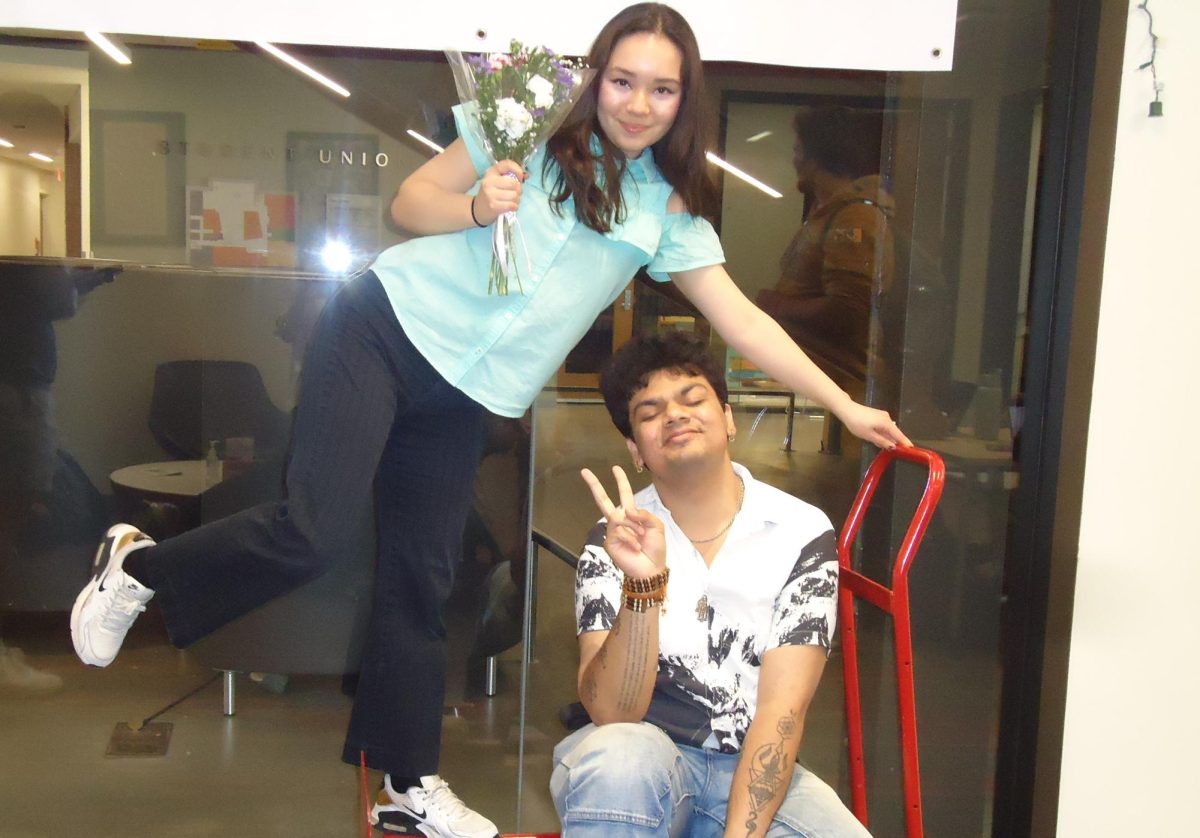Spring is a new beginning for me. Not only do I celebrate the birth of green grass which promises the blooming of hope, but also I rejoice in the victory over the year I put behind. In spring, I gladly celebrate Naw-Ruz. Also spelled, Nou (new) Rooz (day), it is a festival which celebrates the New Year.
Naw-Ruz is not exclusive to Iranians or any religious group within the country. The date is determined according to the solar calendar and begins on the first day of spring (March 21). The festival lasts for thirteen days and is a time of renewal and joy.
The gathering of relatives and friends is one of the main aspects of Naw-Ruz. It is through the sharing of one’s joy that the old and the young come together to renew aged relations and reunite the beauty of nature with the daily lives. After five years of being apart from family and home, I decided to observe this colorful and happy holiday with some familiar faces. Drowning into the childhood memories of New Year rituals and shopping stories, I packed for Toronto, Canada, where I was about to reunite with cousins I had not seen for almost ten years.
It felt like decades that I had not sensed the warmth of family’s embrace in its Iranian definition, since I have almost been living the individualistic, mechanical life of the “starving student.”
In Iranian culture, family bonds are taught to be strong. The elders are the symbol of respect and the young are the new generation, which worried me: how much of this celebration will stay in their memories as opposed to the international Christmas trees and reindeers? I found myself stuck between two generations of people. To one, I was a little child who has grown now into a woman hungry for the positive opportunities of the West such as education. To the other, I was just an “American cousin.”
Though the town wasn’t completely painted with the red and green feel of the New Day and I could not take thirteen days off of life to just enjoy the festival, I had a wonderful time visiting families whose successes make me proud. When one’s home is so far away, it is almost impossible to sense it amid a foreign land. But it wasn’t until I reached the American border that I really felt like a foreigner so far away from home.
When I handed the officer my green card, he asked where my country of citizenship was. I calmly answered “Iran.” His eyebrows rose. He frowned at me. His look told me, ‘How dare you make fun of me?’
I didn’t know how else to answer, so I repeated a bit louder, “Iran, sir.” He didn’t understand me this time either and chose to look himself. He looked down at the card. “Oh, ‘I-ran,’ you mean.”
I stared at him in silence, and all I was thinking about was how it was possible for someone to expect me to mispronounce the name of my own country. He made his investigations and passed me along to the next stop.
The red marks, initials and signs all over my ticket seemed like a happy hunt for the next office. He looked so excited to search my belongings, and he did. He put everything apart and searched through all the zippers, pockets and even pages of my diary. Even pictures, almonds and pistachios posed “potential for terrorism,” as he claimed. So he searched.
It felt like, as he did not find anything, he decided to search my mind. “What do you think about the current president of Iran?” “Would you go back to Iran some day?” “Are Iranian women oppressed and powerless?”
My ears rang to the word “powerless.” How much does he know about the long time struggle of Iranian women, who happen to be some of the most librated women in the Middle East? In that moment, I looked around the room. All the bus passengers were gone and settled on their seats. The last passenger was me. All the other officers had left their booths to come watch me, the loud, audacious, quick-to-answer woman. Watching their amazement, laughter and often puzzled faces, I thought to myself “Isn’t this power?”
Tired, and crushed, I longed for “home” – a place where I am respected, and not judged for the mistakes of a small, conservative group. I wondered how much the cover of a passport or a detailed search through a small luggage bag of belongings could reduce the sense of individual identity? How much of his fear standing in front of an Iranian woman is his right?
At the end, he nicely apologized for the mess he had made and wished me a happy new year. As I walked out, he shouted, “Hope you write good things about me.” By then, even I had started to shove through things in my mind. All I could find were his bold words, “Potential for terrorism,” “oppressed and challenged” or “It would be better when you change your passport.”
Parisa Saranj is a Collegian columnist. She can be reached at [email protected].






